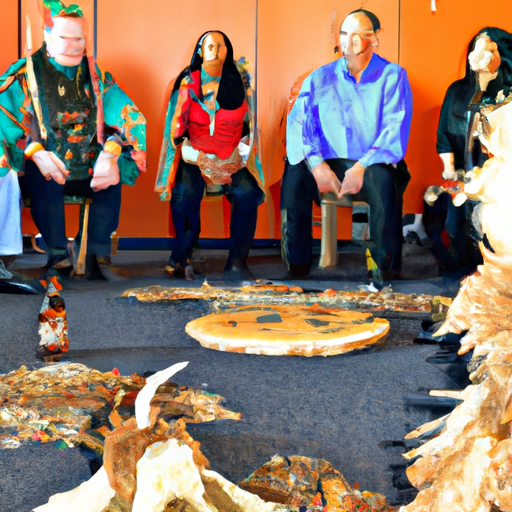Understanding the Opioid Crisis: A Cultural Approach to Problem-Solving in Canada’s Indigenous Communities
In recent years, the opioid crisis has become a significant public health issue in Canada, largely impacting Indigenous communities. The issue is discussed in depth in a recent video produced by APTN News, which places a spotlight on the importance of culturally appropriate services in combatting the opioid crisis.
The Impact of the Opioid Crisis on Indigenous Communities
With the opioid crisis continuing to devastate communities across Canada, certain segments of the population, particularly Indigenous communities, have been disproportionately affected. Factors such as historical trauma, systemic racism, and social determinants of health have compounded the impact on these communities. Opioids have contributed to significant rises in homelessness, crime, and addiction-related deaths among Indigenous groups. Consequently, they bear a heavier burden in the crisis.
Culturally Appropriate Care: A Step in The Right Direction
As outlined in the APTN News video, a new legal agreement reached in an opioid class action lawsuit is paving the way for culturally appropriate services to be offered to Indigenous families. This approach involves recognizing the unique experiences and needs of Indigenous people.
Details of the Legal Agreement
The landmark legal agreement, which sets a precedent in the opioid class action, includes funds for helping combat the opioid crisis in Indigenous communities. The plan involves funding for addiction treatment centers, mental health supports, and family services for Indigenous communities impacted by the opioid crisis. The resolution also emphasizes respecting traditional Indigenous health practices, signifying a significant step towards providing specialized, culturally sensitive care.
A Glimpse into the Key Aspects of This New Approach
- Indigenous community-led initiatives: The focus is placed on giving Indigenous communities the resources needed to sustain their initiatives aimed at tackling the opioid crisis.
- Respect for traditional practices: The agreement lays the groundwork for a care approach honouring unique Indigenous healing practices.
- Funding: Establishment of a fund to finance recovery services and addiction treatment among Indigenous communities.
- Addressing underlining issues: Measures are in place to address the systemic issues like homelessness and crime which contribute to the opioid crisis within Indigenous communities.
- Naloxone provision: The agreement will increase the availability of naloxone, a life-saving medication to reverse the effects of opioids.
Benefits and Potential Outcomes
This unprecedented move promises to benefit Indigenous communities in multiple ways, primarily by reducing the burden of opioid-related diseases and deaths. By recognizing and validating traditional practices and wisdom, a more holistic approach to addictions treatment is encouraged. Community-led initiatives can also play a key role in combating systemic factors like crime. Moreover, by widening access to naloxone, more lives can be saved from opioid overdoses.
Conclusion: Addressing the Opioid Crisis in a Culturally Appropriate Manner
The new legal agreement considered in the opioid class action holds promise for Indigenous communities grappling with the opioid crisis. By prioritizing culturally appropriate solutions and increasing access to naloxone, it fosters a more holistic, comprehensive, and inclusive approach to combatting the opioid crisis. This development underscores the necessity to consider cultural contexts in tackling public health emergencies—an important step forward in addressing the challenges of the opioid crisis in Canada’s Indigenous populations.


